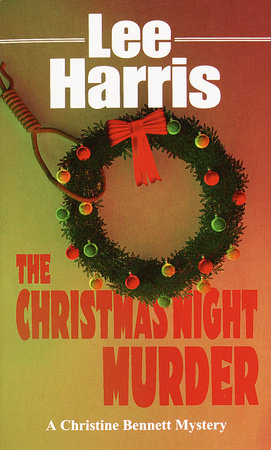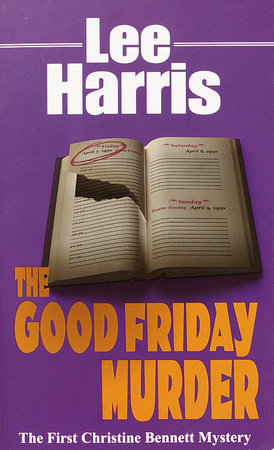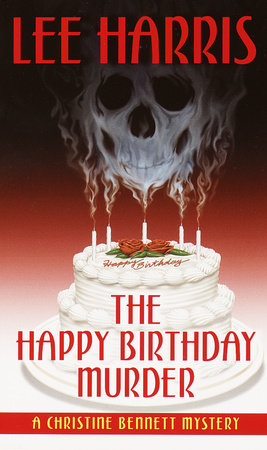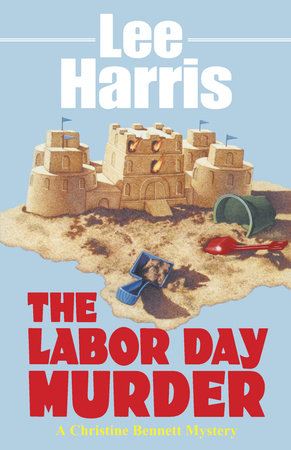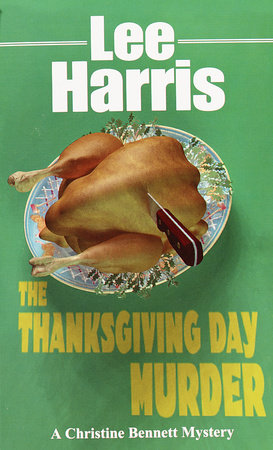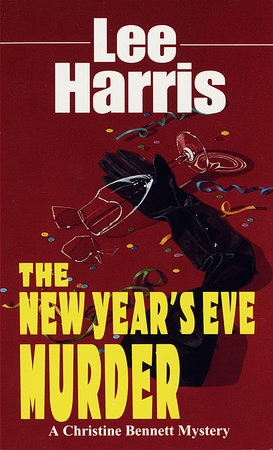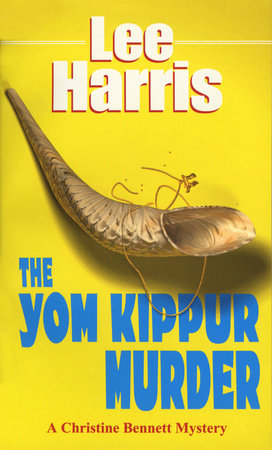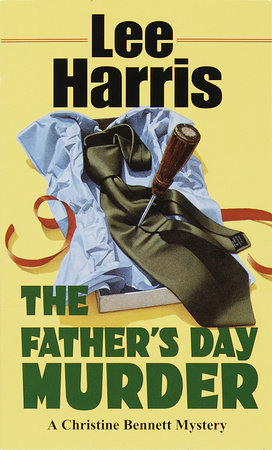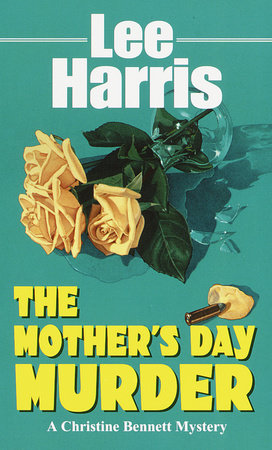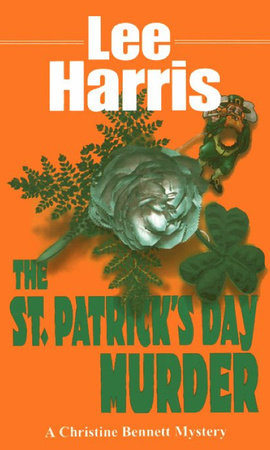Excerpt
The Christmas Night Murder
1
It was my first Christmas as a wife and I discovered pretty fast that fifteen years as a nun and a little more than a year as a single secular woman had not prepared me for the holiday as a married woman. As though a chemical change had occurred within me, I found it was not enough to put up a small tree and decorate it as I had the year before, my first Christmas out of the convent. From deep within me came the desire to do more, much more, so that Jack, my husband of four months, would feel both the memories of Christmas as a boy and the sense that we were starting our own traditions, our own way of celebrating, so that years from now, in the next century, I marveled, our progeny would describe Christmas in our house as wonderful and memorable and the only way to celebrate, an old-fashioned Christmas.
But I had a lot of obstacles. It was easy enough with a man in the house to acquire a larger tree, to decorate it extravagantly, to put lights outside and in hard-to-reach places. But Christmas is so much more than a tree and lights. It is smells, the smells of special, seasonal foods cooking and once-a-year cakes and cookies baking in your own oven. I was almost completely at a loss.
Having entered St. Stephen’s earlier than the usual post-high-school age because of the loss of my parents and other family problems, I had never had the opportunity to learn to cook at my mother’s side. At the convent, where baking began weeks before the holiday, I had never participated. The nuns displayed their individual talents to benefit everyone, and a handful of excellent cooks and artful bakers, each with a few specialties and the desire to produce and share them, saw to it that we ate well much of the time. My talents lay elsewhere. I eventually got a master’s in English and taught at the convent college. The closest I ever came to a cookbook was descriptions of food in the books I read. Dickens’s portrait of old Fezziwig’s Christmas dinner was incorporated into my personal Christmas lore.
Thus at age thirty-one I could cook only to stave off hunger and I had never baked in my life. With a policeman husband who had made a more than respectable cook of himself and who had a palate I envied, I was still too shy after four months of marriage to try new dishes, while the thought of baking brought me to a near panic. I had more or less decided after I left St. Stephen’s and moved into the house in Oakwood that my aunt had left me that I would survive without learning how to cook. So what if the newspaper of record devoted pages every week to this increasingly popular activity? Did I have to run with the crowd? It was enough that I ran—or walked—on the streets of Oakwood every morning that the weather allowed. If Jack wanted a good meal, he could have the pleasure and pride of making it for us.
And then one day, as though the calendar had kept a secret from me, it was less than a month till Christmas, then almost two weeks, and Jack, who had never had a tree in his tiny Brooklyn apartment, was talking about trees and decorations—and food. My panic was palpable. So I did what I had learned to do over the last eighteen months when a crisis loomed. I turned to Melanie Gross.
That I went for help to a Jewish friend is not an indication of desperation but of the affection I have for her and, above all, how much I admire her homey skills.
“You’ve never made Christmas cookies?” she said in apparent disbelief.
“Melanie, you know I’ve never made anything. Until I met you and Jack, I thought tuna fish sandwiches were gourmet food.”
“Chris, I gave you everything you need as a wedding present. You promised you would use it. I believed you.” She seemed almost devastated, betrayed by her friend.
“It’s only been four months,” I said lamely, wondering if my unkept promise constituted a lie at this early point.
“Nothing’s lost,” she said breezily. “We’ll start with Christmas cookies.”
“Have you ever made them?”
“No.”
“Then how do you know you can?”
She gave me her wonderful smile. “How hard can they be?” she said, and I knew we would succeed.
Her wedding present had been all the necessary cooking utensils a new bride would need. Before selecting them, Mel had gone through my kitchen, which was still very much Aunt Meg’s kitchen because I had done little to change it. She had oohed and aahed at Aunt Meg’s cast-iron pot and assured me it was priceless, but much of the other stuff she felt needed replacing or updating. Cookie sheets were banged up and uneven; cake tins were rusting. A favorite frying pan of my aunt’s had a bottom that had risen, caused, Mel informed me, by plunging it hot into cold water. I did not tell her that my aunt had probably not been responsible for the demise of the pan.
The day before our wedding she had come to the house with an enormous carton filled with cookie sheets, round and oblong cake pans, a rack to cool cakes on (I had to ask what that one was for), and a set of essential pots and pans. I loved every shiny new piece she gave me, especially because I love her, because I probably couldn’t have arranged a wedding without her and her remarkable mother, but I had not used even one of the baking items. Now they would get their baptism by fire.
Like the excellent teacher she is, Melanie had supervised while I did nearly everything by myself. When my kitchen, where we did our baking while her children were minded by a teenage sitter in their own home, failed to have some necessary electrical appliance, she showed me how to work with my hands and manual utensils.
“Here’s how you sift flour,” she said, spreading a piece of waxed paper on my counter and dumping flour into an old sifter.
“Aren’t you going to measure it?” I asked with concern.
“After we sift it. Want to know why?”
“I guess I do, Mel,” I said, wondering whether I could stretch my mind to accommodate all this new information that I had lived without for thirty-one pretty successful years.
“Because sifting will lighten it. There’ll be more than you started with. Always measure after you sift, not before. Want to know something else?”
I laughed. “Is this need to know or nice to know?”
“It’s nice to know. In Europe, they measure by weight. In a typical kitchen you’ll find a balance scale—”
“A balance scale?”
“It’s much more exact than dry measure and you can weigh first and sift afterward. We inexact Americans have to be more careful. Now, put it into the measuring cup gently, Chris, and whatever you do, don’t shake it down.”
And so it went. My stove was neither as new nor as accurate as hers, but she was so clever, she made it work right. (First thing next year I’m going to get the gas company out to check the temperature settings, which I just know will give me all the professionalism I need to pass myself off as accomplished. Alas, the sin of pride is the hardest to conquer.)
When Jack came home that night, late because he went to his law-school classes, he stopped just inside the door and took an immensely deep breath. “Woman,” he said, “I may marry you.”
“Again?”
“Oh sweetheart, it’ll seem like the first time. Did you really bake today?”
“With a lot of help from Mel.”
He dropped his books and marched into the kitchen, where pyramids of decorated stars and angels and snowmen were stacked on plastic plates and covered with colored cellophane and tied with red ribbons (Mel never does anything by halves), and he stopped dead, speechless for the moment. “I didn’t know how to ask you,” he said, his voice a little boy’s, almost breaking.
“I thought you’d like it,” I said lamely.
“It’s incredible.” He looked at the wrapped plates lining the counter. “It must have been like losing your virginity.”
I went over to him and wrapped my arms around him, my wonderful husband who had not asked for what he wanted, to spare me embarrassment. “Let me tell you the truth. Baking is fraught with a lot more terror and possibility of failure than first-time love.”
“Oh baby,” he said, “but just think how satisfying it is.”
I wasn’t sure which he meant, but in the spirit of Christmas I agreed with him.


